Yes, cats can eat flies and most of them do at some point or another.
Hunting flies is an instinctive activity that helps cats develop their skills.
Due to the small size of a fly, eating one should not cause your cat any harm.
However, flies do carry a high number of bacteria and pathogens that can impact a cat’s health and immune system.
This is more likely to happen if your cat is small, young, or sick, or if they consume a high number of flies.
Contents
Can Cats Get Sick From Eating Flies?
Some cats may experience sickness and diarrhoea as a result of eating flies but generally, a cat eating a fly is nothing to worry about.
If a cat eats flies regularly then it can cause health issues and the behaviour should be deterred where possible to prevent excessive consumption.
With that said, hunting flies on occasion can actually be beneficial to your cat’s health thanks to the physical and mental stimulation.
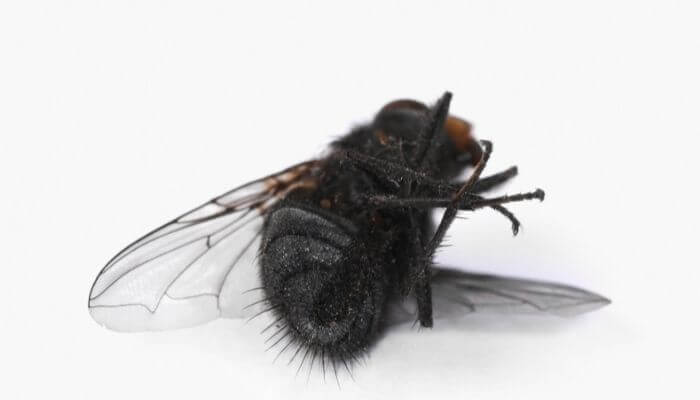
The risk with flies is that they carry a lot of bacteria and microbes which means consuming flies on a regular basis can lead to sickness, disease and other health conditions.
Eating flies may also cause gastrointestinal parasites and other issues.
Keep an eye out for symptoms of digestive problems such as:
- Vomiting
- Diarrhoea
- Eggs in your cat’s stools
Potential Health Risks Associated With Eating Flies
Although most cats will be fine after eating a fly, there are a few potential health risks to be aware of.
These risks include:
- Bacteria causing sickness and diarrhoea
- Risk of poisoning due to coming into contact with poisonous insecticides (if the fly has been killed or dosed with insecticide this can transfer over to your cat causing symptoms of poisoning)
- Gastrointestinal parasites such as worms can lead to further issues including infections
- Fly bites and fly eggs can also be an issue if your cat is spending a lot of time around live flies
If your cat experiences diarrhoea, vomiting or any other symptoms as a result of eating flies, the symptoms should subside after a day.
However, if they persist then it is important to consult a vet as your cat may have a gastrointestinal bacteria infection.
If your cat is showing any concerning symptoms we recommend you speak with a vet ASAP.
JustAnswer allows you to talk in real-time to veterinary experts for a small fee.
Can My Cat Get Maggots From Eating Flies?
No, cats cannot get maggots from eating flies.
A cat’s digestive system will break down the fly and it will not be able to lay eggs or develop maggots.
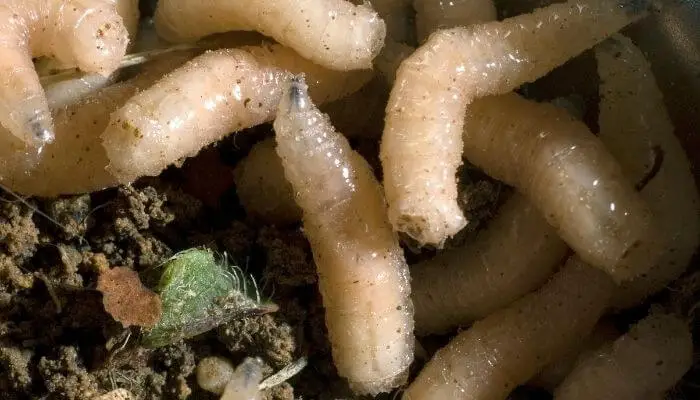
While maggots are not an issue, a cat can get worms from eating flies.
Keep an eye out for indications of internal parasites and keep your cat on a regular deworming schedule to help prevent this.
Maggots can be a problem if flies lay their eggs in infected wounds.
If you notice your cat has any open wounds they should be treated to prevent maggot infestation.
If a fly has laid eggs you will start seeing maggots in your cat’s wound.
This can happen if your cat is spending a lot of time around live flies and the flies land on your cat when they are sleeping etc.
If you have found maggots in your cat’s wound, take your cat to the vet so the wound can be properly treated and bandaged.
Incorrect treatment can make the issue worse so it is important to consult a vet immediately.
What Happens If A Cat Eats Fly Eggs?
If a cat eats fly eggs it is not a problem as their digestive system will break down the eggs so they do not develop.
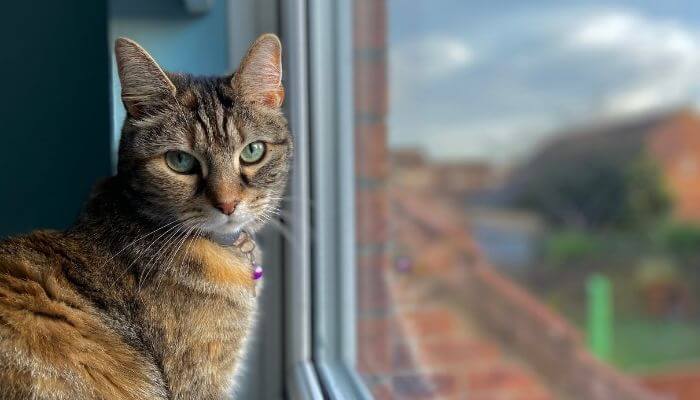
Fly eggs are not dangerous on their own but a cat can get sick if they eat fly eggs from infected wounds or hair that is matted with faeces.
If your cat is eating food that has been exposed to flies there is a risk of there being high levels of microbes and toxins which can make your cat sick.
To prevent this make sure your cat’s food is appropriately stored, don’t leave food out for a long time, and keep all rubbish in secure bins.
What To Do If Your Cat Has Eaten A Fly
It is not uncommon for cats to hunt and eat flies.
In most cases, it is nothing to worry about and there is no immediate danger to your cat.
Watch out for symptoms of sickness after your cat has eaten the fly just in case.
Problems may arise if your cat consumes flies regularly or if your cat is young.
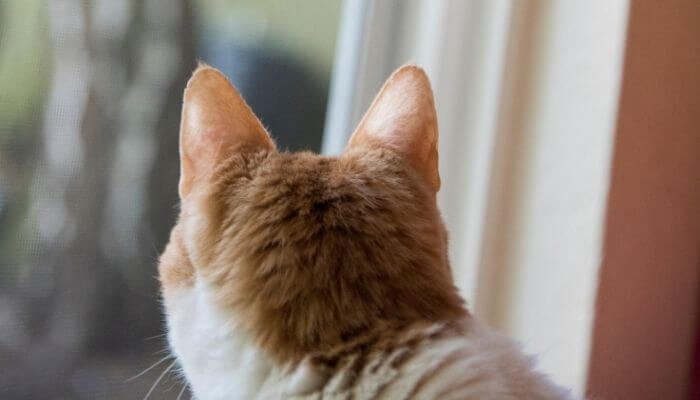
Kittens are at higher risk of becoming sick after eating flies because their immune system and digestive system are not yet fully developed.
If your kitten eats a fly they may vomit and experience stomach discomfort.
For adult cats, problems only arise if the fly was carrying an infection that can be passed onto your cat or if the fly had been contaminated with insecticides.
If the fly has been killed or sprayed with insecticide then this may cause harm to your cat (depending on the type of insecticide used).
Keep a close eye on your cat and look out for lethargy and signs of poisoning. Consult a vet if you notice any symptoms or changes in your cat’s behaviour.
Are Flies Good For Cats?
Yes, there are actually a number of benefits to your cat chasing flies.
This is a simple hunting game that keeps cats stimulated and allows them to practice their skills and use up energy.
Flies move quickly so hunting them is an excellent way for your cat to sharpen their skills and use their senses.
When your cat chases a fly it also helps to prevent the fly from landing and laying their eggs on food or nearby surfaces.
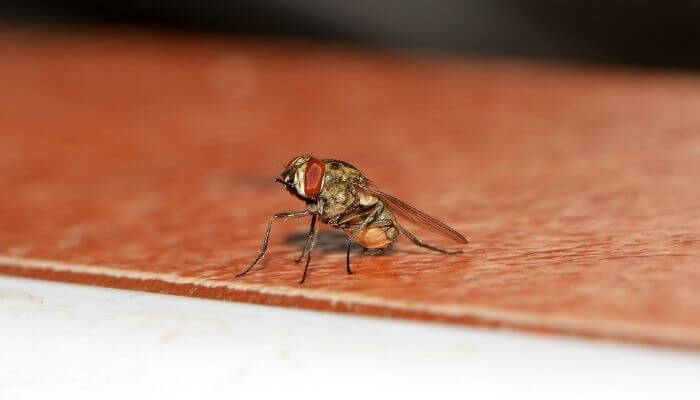
However, there are downsides if your cat eats flies regularly.
One fly here and there shouldn’t be an issue and even offers a source of protein.
It is the pathogens carried by flies that pose a risk, fortunately, the exposure would be minimal from consuming just one or two flies.
How To Stop Your Cat From Eating Flies
If there are flies in the house your cat will probably hunt them.
There are two main ways you can stop your cat from eating flies; firstly you can redirect their attention and secondly, you can minimise the number of flies that are coming into the home.
1. Redirect Your Cat’s Interest
Redirecting your cat’s attention away from the fly means giving them other ways they can hunt and hone their skills without the risk of them becoming unwell.
There are a few ways you can do this:
- Offer your cat toys that encourage their instinctive hunting behaviours, for example feather toys
- Spend time playing interactive games with your cat – they like chasing flies because the fly is fast and unpredictable giving them time to practice their hunting skills, this is something they can practice during playtime too
- Install cat shelves or a cat perch so your cat has more to explore and will be distracted from the flies at the windows
2. Minimise The Number Of Flies
If there are fewer flies around your cat is less likely to try to hunt and eat them.
Flies can be a nuisance but these tips will help minimise the issue:
- Remove remaining food from pet bowls after 30 minutes and cleaning the bowl
- Store food in secure containers or the fridge
- Keep the litter tray clean and dispose of cat litter in bags and secure bins
- Install insect screens on windows and doors
- Use fly traps where appropriate
When trying to minimise the number of flies at home, don’t use toxic insecticides as the flies don’t die straight away which increases the risk of cats chasing and eating infected flies.
Why Do Cats Hunt & Kill Flies?
Cats eat flies because they are predators and have a natural instinct to hunt.
Flies are fast-moving and behave sporadically which grabs a cat’s attention and gets them into hunting mode.
While pet cats don’t need to hunt flies for food, they still love to chase and catch them.
It is quite common for house cats to hunt flies, the behaviour is great for skill development as well as their physical and mental well-being.
Some cats simply use flies for playing and they will chase them around but won’t kill or eat them, instead, they will let them go when they catch them so the game can start all over again.

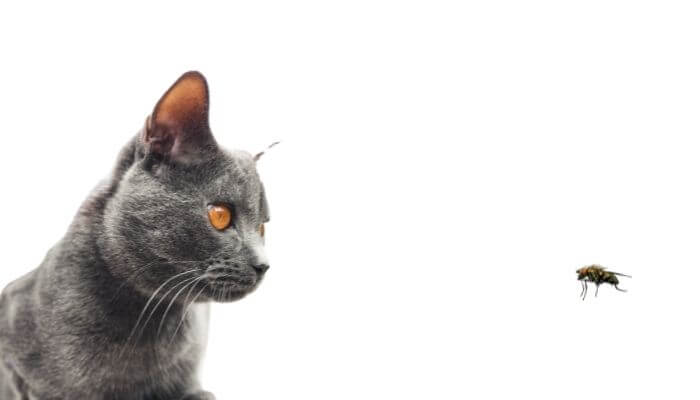
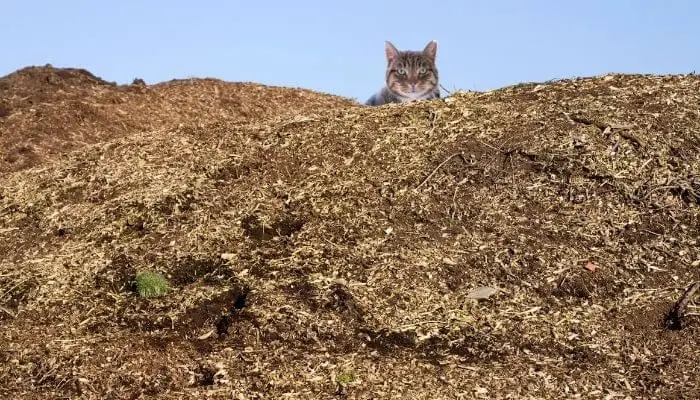

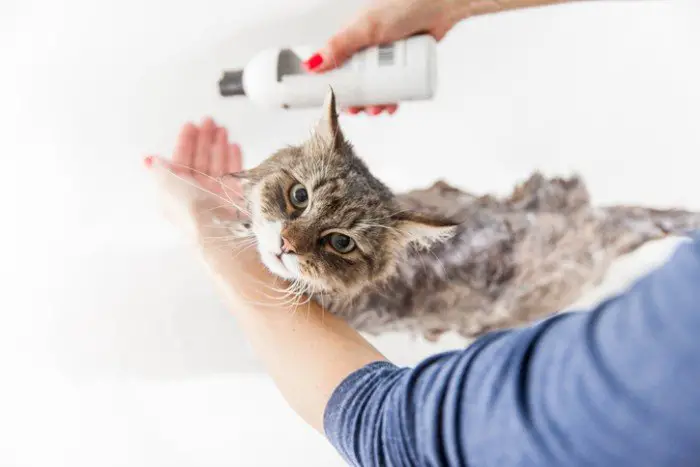
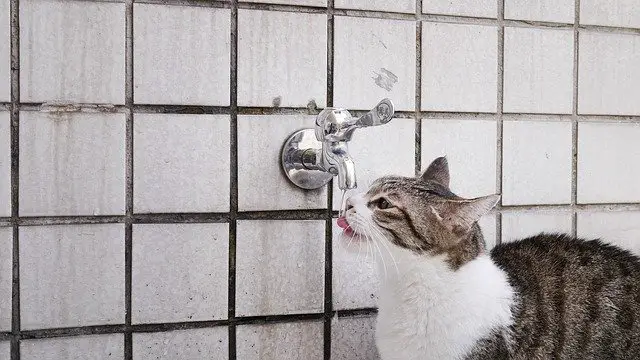
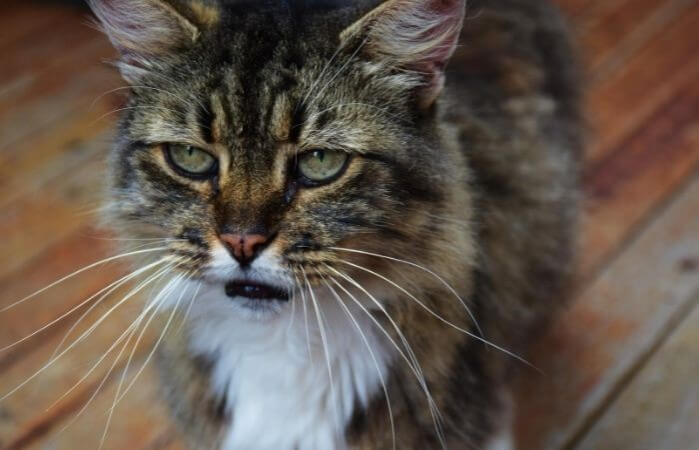

Leave a Comment